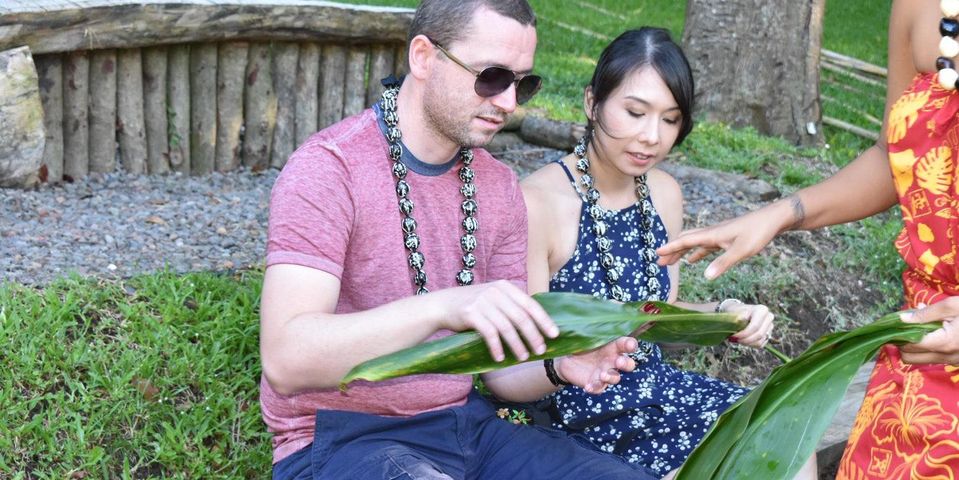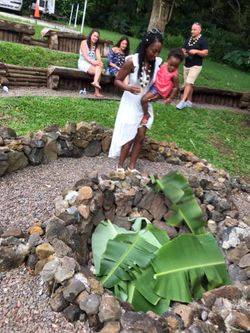
The luau leaf is an important aspect of traditional Hawaiian luaus. Coming from the taro plant, these large green leaves are used in a variety of dishes, but their cultural significance is just as important as their place in Hawaiian cuisine. Below is a brief history.
The History of Luau Leaf
Origin of Kalo
Luau leaves come from the taro plant, which is the English name for Kalo, the physical manifestation of the demigod Hāloa. The legend of Hāloa dates back to the beginning of the Hawaiian people. His father is Wākea, the expanse of the heavens, and his mother is Hoʻohōkūkalani, which means “to adorn the heavens with stars.” Her mother, Hāloa’s grandmother, is Papa, the foundation that is earth.
When Hāloa was born he was stillborn. His parents buried him on the eastern side of their home, which is also the same side as the sunrise. In this spot, a plant with a long stalk and large, heart-shaped leaves began to grow. The first Kalo plant, it is also known as Hāloanakalaukapalili.
When Hoʻohōkūkalani became pregnant again, this healthy baby boy was named Hāloa to honor his deceased older brother. This baby grew up to be the first Hawaiian, and all Hawaiians can trace their lineage back to him. This origin story also connects Hawaiians to nature, meaning that everything on the island is their ancestor.
 Luau Leaves Today
Luau Leaves Today
Kalo, or luau leaf, is a staple in Hawaiian cuisine. Just like a good older brother, it takes care of its people and nourishes them. Dishes such as poi are made from taro root, but lau lau incorporates the leaves themselves. Usually pork is wrapped in layers of luau leaves and cooked in an underground oven. Modern Hawaiian cuisine also uses chicken or fish in place of pork.
Other common recipes use luau leaves in ways similar to other leafy green vegetables like spinach. Leaves are boiled and sweetened with coconut milk, and some dishes also add a protein to the mix. Cooked luau leaves can also be spread with spiced chickpea paste, rolled, and either steamed or deep fried. They make a great side dish for curries and pork meals.
For an intimate experience in Hawaiian traditions, Experience Nutridge is there. Their luau events and Hawaiian cultural experiences engage all five senses, from watching the process of imu to helping prepare a delicious dinner made from the best local ingredients. Located in Honolulu, you can also book a authentic private luau for a group of 30 or more guests while taking in the exquisite sunset views of the island. To learn more about their options and to book, call (808) 531-5050. Stop by their website for a look at their menu of Hawaiian cuisine.
About the Business
Have a question? Ask the experts!
Send your question

